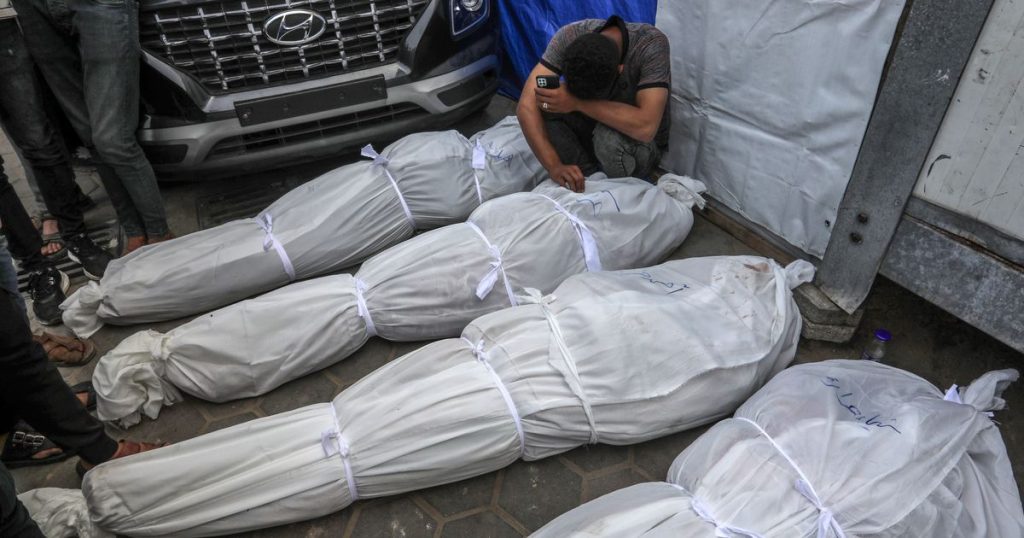Israel is currently embroiled in a war in Gaza that has been ongoing for eight months. An Israeli airstrike killed 27 people in central Gaza, mostly women and children, while fighting with Hamas continued across the north. Prime Minister Benjamin Netanyahu is facing criticism from his War Cabinet members, with his main political rival, Benny Gantz, threatening to leave the government if a plan is not created by June 8 that includes an international administration for postwar Gaza. The U.S. has presented an ambitious plan for Saudi Arabia to recognize Israel and help the Palestinian Authority govern Gaza in exchange for eventual statehood, but Netanyahu opposes Palestinian statehood and rejects the proposals in favor of maintaining security control over Gaza.
Gantz’s ultimatum seeks to normalize ties with Saudi Arabia and other Arab countries while ensuring that no outside power has the authority to impose a Palestinian state on Israel. If Gantz were to leave the government, Netanyahu’s coalition would remain intact but would rely more heavily on far-right allies who support policies such as the voluntary emigration of Palestinians from Gaza, full military occupation, and the rebuilding of Jewish settlements. Discussions regarding the future of Gaza are taking place amidst ongoing violence, with Hamas militants regrouping in parts of northern Gaza that were heavily bombed in the early days of the war and where Israeli ground troops operated.
Recent airstrikes in Gaza, particularly in the Nuseirat refugee camp, have resulted in multiple casualties, including women and children. Heavy fighting and airstrikes have been reported in northern Gaza, where isolation by Israeli troops has exacerbated the situation. The Civil Defense reports that hundreds of homes have been destroyed and that rescuers have recovered at least 150 bodies, with a significant number being women and children. The overall death toll in Gaza is estimated to be at least 35,000, with around 80% of the population displaced within the territory.
Israel launched its offensive following a Hamas attack in southern Israel that resulted in numerous casualties and abductions. The conflict has caused widespread destruction and displacement within Gaza, leading to a humanitarian crisis that is being exacerbated by ongoing violence. Netanyahu’s critics, including Israeli protesters, accuse him of prolonging the war and rejecting a ceasefire deal in order to avoid accountability for security failures. The U.S., Israel’s closest ally, has expressed frustration with Israel’s conduct of the war and the humanitarian crisis, leading to delays in military aid and weapons shipments.
Netanyahu maintains that the offensive must continue until Hamas is dismantled and the hostages held in Gaza are released, as well as the remains of others who were killed. He argues that discussing postwar arrangements while Hamas is still fighting is pointless, as the militants have threatened anyone who cooperates with Israel. Polls indicate that Gantz, a political centrist, may succeed Netanyahu if early elections are held, potentially leaving Netanyahu vulnerable to corruption allegations. The ongoing conflict in Gaza, the division within Israel’s leadership, and international pressure underscore the complexities and challenges in finding a resolution to the long-standing conflict in the region.


